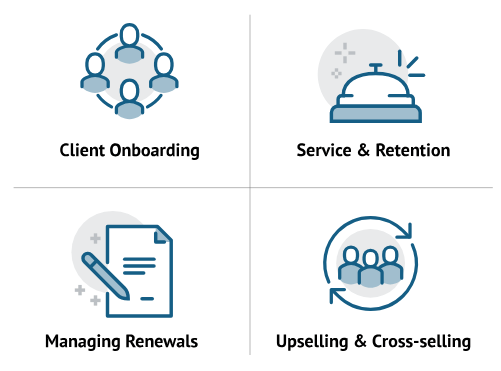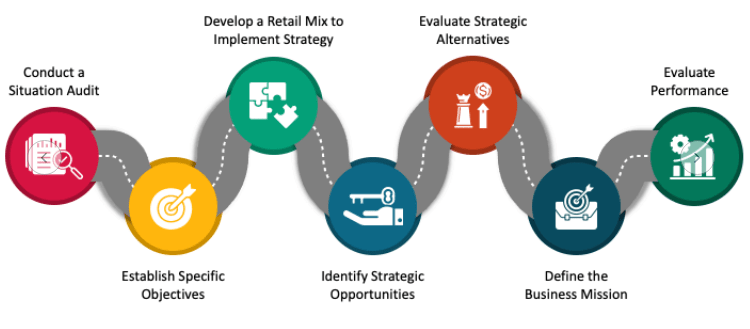
- Role Overview
- Primary Responsibilities
- Skills and Qualifications Required
- Relationship Management
- Strategic Account Planning
- Revenue and Profit Growth
- Internal Team Collaboration
- CRM Tools and Reporting
Role Overview
The Strategic Account Manager (SAM) plays a vital role in driving the success and growth of a company by managing and nurturing relationships with key clients. This role focuses on building strong, long-term partnerships that ensure client needs and expectations are met while aligning with the company’s strategic objectives. By doing so, the SAM helps guide clients toward sustainable growth, increased product adoption, and lasting success, which ultimately benefits both the client and the organization. As a senior-level position, the SAM collaborates closely with various internal teams such as sales, marketing, product development, and customer support. This collaboration ensures that clients receive a seamless and customized service experience that addresses their unique requirements. The SAM is responsible for strategic account planning, monitoring performance metrics, and driving both revenue and profit growth. A key aspect of the role is maintaining high levels of client retention and satisfaction, which is essential for long-term business success. To excel as a Strategic Account Manager, a deep understanding of the client’s industry and specific business challenges is necessary. This knowledge allows the SAM to develop tailored solutions that effectively address those challenges. Successful candidates must be proactive, results-driven, and capable of managing multiple high-priority projects simultaneously. Strong communication and relationship-building skills are also crucial for navigating complex client interactions and internal coordination. Overall, the SAM acts as a trusted advisor and strategic partner to key clients, playing a central role in strengthening customer loyalty and contributing significantly to the company’s growth and profitability.
Primary Responsibilities
Client Relationship Management is essential for building and maintaining strong connections with senior client stakeholders. The Strategic Account Manager (SAM) acts as a trusted advisor and primary point of contact, regularly conducting business reviews to ensure client satisfaction and uncover opportunities for expanding products and services. Understanding each client’s unique needs, business challenges, and objectives allows the SAM to tailor strategies that align with their goals, fostering deeper partnerships. Strategic Account Planning involves developing detailed account plans that highlight key objectives, growth opportunities, and milestones. The SAM identifies key decision-makers and influencers within the client organization, ensuring alignment with their goals. Driving growth initiatives includes upselling, cross-selling, and implementing new solutions to maximize account potential. Revenue and Profit Growth is managed by overseeing the sales pipeline, closing sales, and delivering projects on time. The SAM actively seeks new opportunities to increase revenue through innovative product and service offerings while managing account budgets to ensure profitability. Internal Team Collaboration is critical, requiring close work with product management, sales, marketing, and customer support teams. The SAM collaborates with sales to create effective client strategies and provides feedback to improve product offerings and customer satisfaction. CRM Tools and Reporting support account management by tracking progress, documenting client interactions, maintaining accurate records, and generating performance reports.

Client Retention Strategies focus on delivering value, resolving issues proactively, and implementing feedback mechanisms such as satisfaction surveys. Finally, the SAM monitors performance metrics like revenue growth, client satisfaction, and product adoption. Analyzing this data helps identify trends and challenges, enabling the SAM collaborates to optimize account performance and report key indicators regularly to senior management.
Skills and Qualifications Required
- Educational Background: Bachelor’s degree in Business, Marketing, or a related field is required. A Master’s degree in Business Administration (MBA) is considered an advantage.
- Relevant Work Experience: At least 5 years of experience in account management, business development, or customer relationship management, with a proven track record of managing high-value strategic client accounts.
- Strong Communication Skills: Excellent written and verbal communication abilities to effectively engage senior stakeholders and clearly present complex information. Skilled in negotiation and managing client expectations to ensure service excellence.
- Analytical and Strategic Thinking: Ability to analyze data and performance metrics to make informed decisions that promote client success and business growth. Strong problem-solving skills to develop creative solutions for complex issues.
- Project Management Skills: Strong organizational capabilities to manage multiple clients, projects, and deadlines simultaneously. Experience with project management tools and methodologies is preferred.
- Industry Knowledge: Deep understanding of clients’ industries, business challenges, and competitive environments. Keeps updated on industry trends, emerging technologies, and best practices to deliver relevant solutions.
- Customer-Centric and Sales Skills: Focuses on building long-term client relationships through active listening and addressing customer concerns. Possesses strong sales skills with experience in upselling, cross-selling, and collaborating with sales teams to drive revenue growth.
- Primary Point of Contact: The SAM acts as the main liaison for key client accounts, managing daily communications to ensure client needs and expectations are consistently met.
- Relationship Management: Building strong, trusting relationships with key stakeholders is central to the role, fostering long-term partnerships that benefit both the client and the company.
- Balance of Skills: The SAM combines empathy, business insight, and tactical execution to address client concerns while advancing business goals.
- Proactive Issue Identification: Anticipating potential problems before they arise allows the SAM to address challenges early, minimizing disruptions to the client’s operations.
- Tailored Solutions: Working closely with clients, the SAM provides customized solutions aligned with the client’s specific business objectives and needs.
- Enhancing Customer Satisfaction: The SAM’s efforts to understand and meet client expectations directly improve customer satisfaction, a key driver for client retention.
- Impact on Retention and Profitability: Maintaining high client satisfaction and strong relationships supports long-term retention and profitability, making the SAM’s role vital to business success.
- Driving Revenue Growth: The SAM plays a crucial role in increasing revenue by identifying and leveraging growth opportunities within key client accounts.
- Collaboration with Sales Teams: Working closely with sales teams, the SAM implements cross-selling and upselling strategies to expand the scope of services and solutions offered to clients.
- Introducing New Solutions: The SAM actively introduces innovative products or services that align with clients’ business goals, helping them improve performance and achieve success.
- Budget Management: Managing account budgets is a key responsibility, ensuring that financial targets are met while balancing the cost of services delivered to clients.
- Profitability Focus: The SAM ensures accounts remain profitable by carefully controlling expenses and aligning client expectations with the company’s pricing and service delivery models.
- Financial Acumen: A deep understanding of the financial aspects of each account is essential for the SAM to make informed decisions that support sustainable growth and profitability.
- Strategic Client Value: The SAM evaluates the strategic value of clients, prioritizing resources and efforts to maximize both short-term revenue and long-term business value.
Relationship Management

Strategic Account Planning
Strategic account planning is the cornerstone of the Strategic Account Manager’s (SAM) responsibilities, serving as the foundation for managing key client relationships effectively. This process involves developing comprehensive and tailored strategies for each client, taking into account their unique goals, challenges, and growth potential. By gaining a deep understanding of the client’s business environment, the SAM can identify critical objectives, potential obstacles, and opportunities that will drive success for both the client and the company. A well-crafted strategic account plan clearly outlines revenue and growth targets, providing measurable goals that guide the partnership forward. These targets are supported by detailed timelines that set expectations for when key milestones should be reached. In addition, the plan includes a roadmap of initiatives and actions designed to help clients achieve their business objectives. This might involve introducing new products or services, optimizing existing solutions, or identifying areas for innovation and improvement. The strength of strategic account planning lies in its dynamic nature. The SAM continuously evaluates and refines the account plans based on changing market conditions, client feedback, and internal company developments. This ongoing process ensures that the strategy remains relevant and effective, keeping clients engaged and satisfied with the company’s offerings. By maintaining a proactive approach, the SAM fosters strong partnerships built on trust and mutual success. Ultimately, strategic account planning enables the SAM to align client needs with the company’s goals, driving sustainable growth and long-term value for both parties. This careful planning and continuous management are essential to building enduring, successful client relationships.
Revenue and Profit Growth
Internal Team Collaboration
Collaboration with internal teams is essential for the Strategic Account Manager (SAM) to deliver a seamless and high-quality service experience to clients. The SAM acts as a bridge between the client and various departments within the organization, including sales, marketing, product development, and customer support. By working cross-functionally, the SAM ensures that all teams are aligned with the client’s objectives, which helps in delivering solutions that are tailored to meet specific client needs. Effective collaboration begins with clear and consistent communication. The SAM keeps internal teams informed about the client’s progress, upcoming projects, and any challenges or risks that may arise. This transparency allows teams to anticipate client needs, address issues proactively, and contribute their expertise to develop the best possible solutions. Regular updates and meetings foster a shared understanding of goals and priorities, ensuring that everyone is working toward the same outcomes. Additionally, the SAM facilitates coordination during project execution, making sure that timelines are met, resources are allocated properly, and client expectations are managed effectively. By aligning internal efforts, the SAM helps prevent delays, misunderstandings, or gaps in service that could impact client satisfaction. Collaboration also encourages innovation, as input from different teams can lead to new ideas and improvements in products or services. The SAM’s role in fostering this teamwork is critical to meeting client goals while advancing the company’s strategic priorities. Ultimately, effective collaboration with internal teams empowers the SAM to create value for clients and build lasting, successful partnerships.
CRM Tools and Reporting
The use of Customer Relationship Management (CRM) tools is vital for the Strategic Account Manager (SAM) to efficiently track account progress, manage client information, and generate insightful reports. These tools enable the SAM to maintain comprehensive records of all client interactions, ensuring that no important details are overlooked. By having accurate and up-to-date data readily available, the SAM can better understand client needs and preferences, which supports more personalized and effective communication. Customer Relationship Management systems also allow the SAM to monitor performance against key performance indicators (KPIs), such as revenue growth, client satisfaction, and product adoption rates. Tracking these metrics helps the SAM identify trends, spot potential issues early, and recognize opportunities for expanding business within existing accounts. This proactive approach ensures that clients receive timely attention and support, enhancing overall satisfaction and loyalty. Regular performance reports generated through CRM tools provide valuable insights to both internal teams and clients. These reports summarize account status, highlight growth opportunities, and flag areas that may require improvement. Sharing this information keeps all stakeholders informed and aligned, facilitating collaborative decision-making and strategic planning. Using a data-driven approach through CRM tools allows the SAM to make well-informed decisions that benefit both the client and the organization. It also helps in prioritizing actions, optimizing resource allocation, and measuring the success of account strategies. Ultimately, effective use of CRM tools empowers the SAM to manage accounts more efficiently, strengthen client relationships, and drive sustained business growth.





